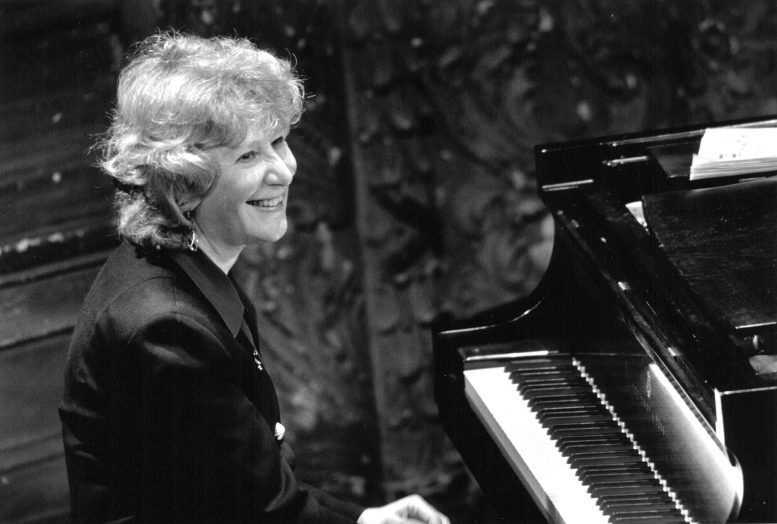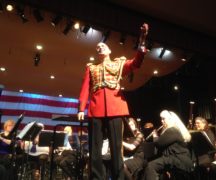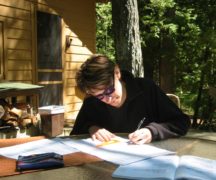By DAVID DUPONT
BG Independent News
Most of the 25 competitors in the David D. Dubois Piano Festival and Competition at Bowling Green State University this weekend will not have a spot in the winner’s circle.
They won’t share in the monetary prizes, nor the recognition.
That doesn’t mean, said guest artist and judge Ursula Oppens, that they won’t gain something. Certainly there’s the discipline and focus performing in such a high level competition brings. They also may very well find friendship.
Oppens, who will be one of the judges in Sunday’s final round, said even as a young pianist growing up in New York City in the 1950s, she didn’t know many pianists. “Being a pianist is solitary.”
When pianists do get together they can form close bonds. Just how close and enduring those bonds can be will be on display Saturday night when Oppens and childhood friend Phillip Moll, also a festival guest artist and judge, will perform music for two pianos.
The Dubois competition begins Friday afternoon at 3:30 p.m. in Bryan Recital Hall with a master class with the guest artists. It continues on Saturday with the semifinal round in which 25 pianists from around the country will perform, and concluding Sunday morning beginning at 8:30 a.m. with the final round.
The Dubois attracts teenage pianists from around the country. The performance level is high, with the semifinalists boasting impressive resumes of triumphs in other competitions. They will be competing for awards of $3,000 for first place, $2,000 for second, and $1,000 for third.
Oppens said as a judge “mainly I just try to let go and see how exciting and wonderful I feel the music is.”
She said that “winning gives a person a great deal of confidence. Not winning shouldn’t destroy it.” And the recognition that comes with victory helps when advancing in the musical world.
Her former teacher Rosina Lhevinne said “she wants her students to do competitions so they will practice on Saturday night instead of going to the movies.”
The competitions themselves, Oppens said, are social occasions. “This is a way to hang out and make friends.”
Oppens and Moll met when they were both studying with Leonard Shure. They attended the music festival in Aspen, Colorado. Their friendship continued when he went to study at Harvard and she attended nearby Radcliffe.
They will reprise a performance of W.A. Mozart’s Concerto for Two Pianos in E-flat Major that they did with the Boston Pops on the occasion of their 50th college reunions. Saturday they will perform with the Bowling Green Philharmonia, conducted by Emily Freeman Brown.
Whether the pianists have known each other as long as she and Moll, or are new acquaintances, playing together is like playing with a friend.
Moll, who resides in Berlin has made his reputation as an accompanist, serving in that capacity with Sir James Galway for many years and as an ensemble pianist.
Oppens is celebrated as an advocate for new music. Her interest began almost by chance. At Harvard and Radcliffe there were few performers. The music majors were musicologists and composers. So she was exposed and attracted to their work.
“I found it a little bit depressing that I was in a field where all the great music had been written in the past,” she said. “This is very exciting what’s happening now.”
At BGSU, a place she knows for its reputation as a stronghold for new music, most of what she and Moll will perform will be from the classical tradition – the Mozart concerto, Robert Schumann’s Andante and Variations for two, pianos, two cellos, and horn, and Francois Poulenc’s Sonata.
They will also play a two-piano version of contemporary composer Frederic Rzewski’s “Winnsboro Cotton Mill Blues.” The composer created this version of a piece that emulates the almost demonic churning of machinery to play with her when they toured England.
Though Oppens was the daughter of a piano teacher, she came to music as a career late. After graduating from Radcliffe, she took a year off before enrolling in Juilliard.
Even then she kept telling herself that she would study for the bar exam. Even after winning the Busoni Competition, she was still considering a law career.
Then in 1971 at 27, she was a founding member of Speculum Musicae, an ensemble dedicated to performing contemporary music. “It is wonderful to have another performance of a Beethoven sonata, and it’s so exciting when you play a piece no one’s ever heard before that’s hopefully adding something that’s unique and needed. That’s when I was sure I wanted to be a pianist.”





